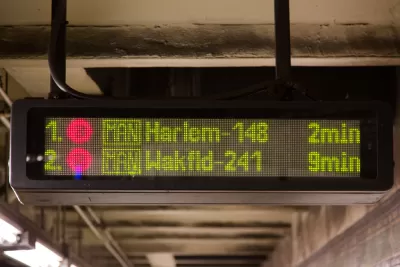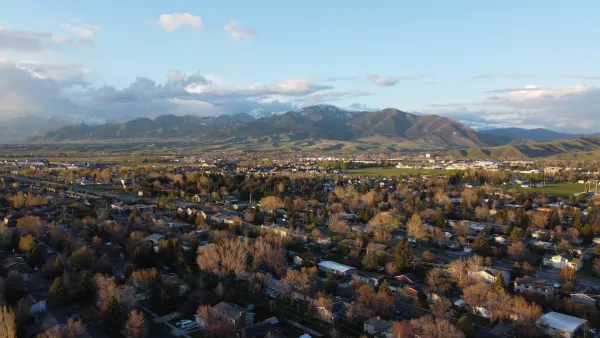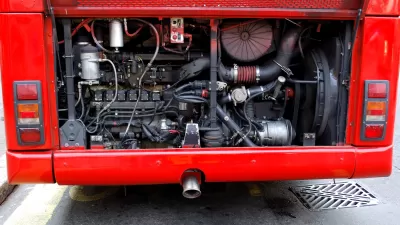Real-time information is critical to keeping public transit a competitive mobility option, researchers suggest.

Transit agencies struggling to sustain ridership in the face of increasing on-demand services have looked to improve their quality of service and user experience. A new research review suggests that real-time arrival and departure data is crucial to that effort.
Sidewalk Labs editor Eric Jaffe reports on a review of studies by researchers from the University of Tennessee and Georgia Tech that evaluated the impacts of real-time data, as well as the barriers to adoption. In a Q&A with researcher Candace Brakewood, Jaffe explains:
The primary benefits include reduced wait times (people use an app to time their walk to a stop or station), reduced travel time (people adjust their trip choices), and increased transit use (people like reduced wait and travel times). In time, the higher-order impact stands to be even greater: a future where integrated real-time data from all transportation options enables a true mobility system that rivals private car use on convenience.
FULL STORY: The real benefits of real-time transit data

Maui's Vacation Rental Debate Turns Ugly
Verbal attacks, misinformation campaigns and fistfights plague a high-stakes debate to convert thousands of vacation rentals into long-term housing.

Planetizen Federal Action Tracker
A weekly monitor of how Trump’s orders and actions are impacting planners and planning in America.

San Francisco Suspends Traffic Calming Amidst Record Deaths
Citing “a challenging fiscal landscape,” the city will cease the program on the heels of 42 traffic deaths, including 24 pedestrians.

Defunct Pittsburgh Power Plant to Become Residential Tower
A decommissioned steam heat plant will be redeveloped into almost 100 affordable housing units.

Trump Prompts Restructuring of Transportation Research Board in “Unprecedented Overreach”
The TRB has eliminated more than half of its committees including those focused on climate, equity, and cities.

Amtrak Rolls Out New Orleans to Alabama “Mardi Gras” Train
The new service will operate morning and evening departures between Mobile and New Orleans.
Urban Design for Planners 1: Software Tools
This six-course series explores essential urban design concepts using open source software and equips planners with the tools they need to participate fully in the urban design process.
Planning for Universal Design
Learn the tools for implementing Universal Design in planning regulations.
Heyer Gruel & Associates PA
JM Goldson LLC
Custer County Colorado
City of Camden Redevelopment Agency
City of Astoria
Transportation Research & Education Center (TREC) at Portland State University
Jefferson Parish Government
Camden Redevelopment Agency
City of Claremont





























